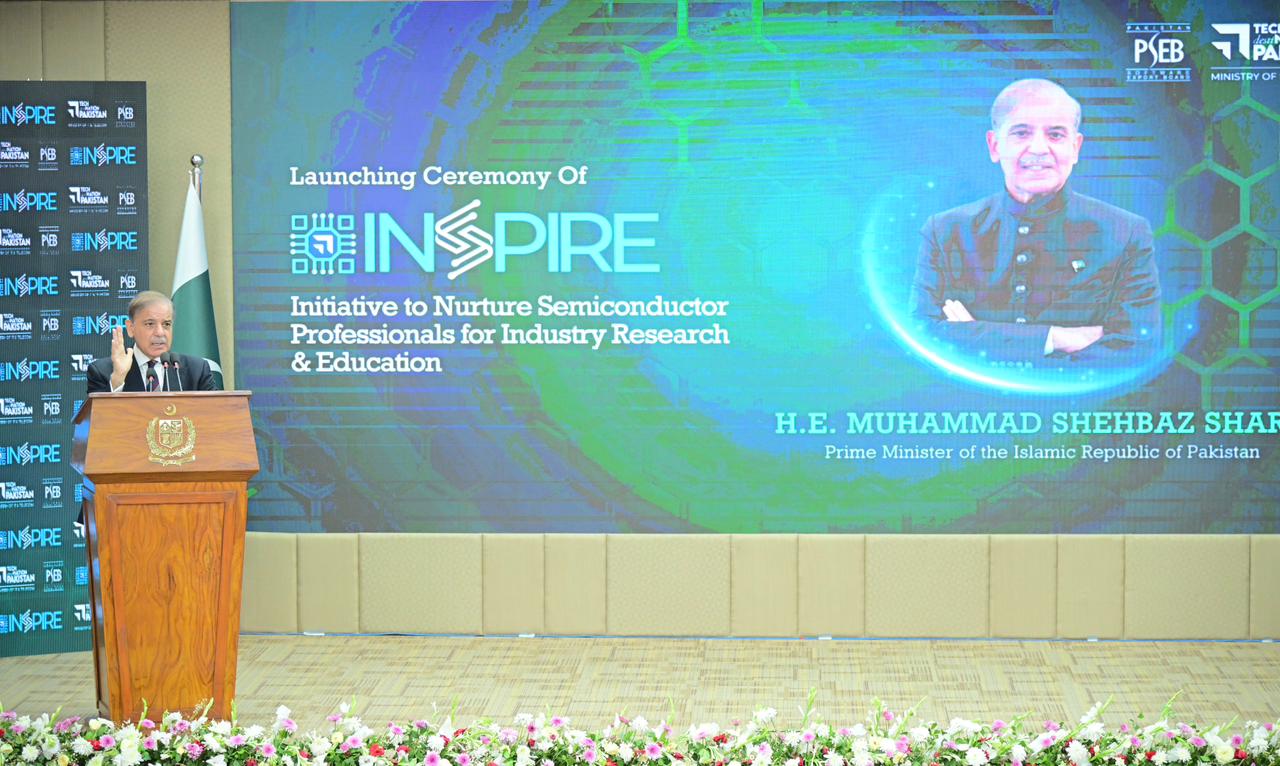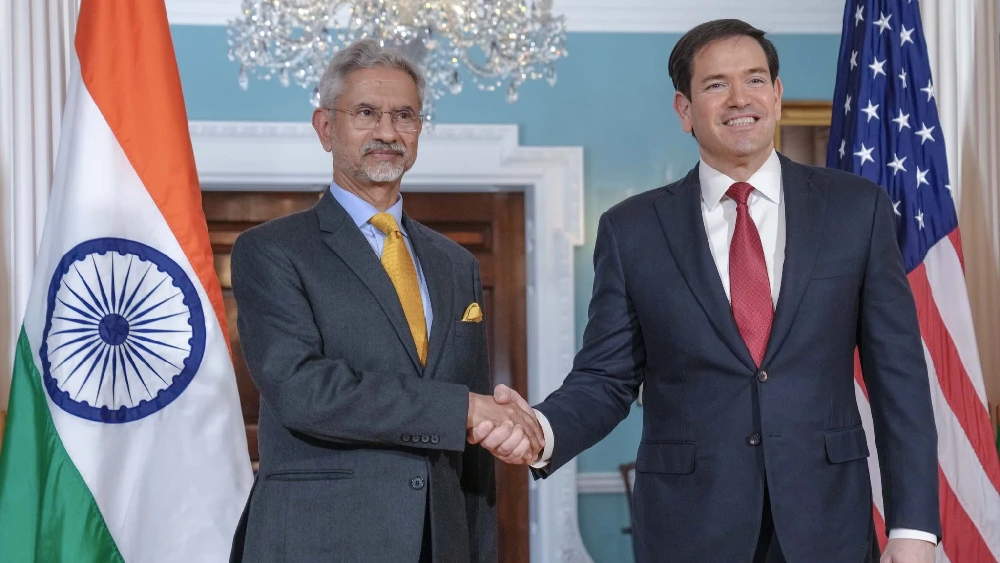ISLAMABAD: Pakistan Prime Minister Shehbaz Sharif launched Pakistan’s INSPIRE initiative on Tuesday, marking the country’s formal entry into the global semiconductor industry.
The project aims to train 7,200 professionals in semiconductor design, research, and development, positioning Pakistan to compete in a sector worth over $600 billion globally.
At a ceremony in Islamabad, the PM called INSPIRE a key step in Pakistan’s transition to a knowledge-based digital economy. The program, backed by the Ministry of Information Technology and Telecommunication (MoITT) and managed by the Pakistan Software Export Board (PSEB), aims to achieve technological self-reliance and enhance global competitiveness.
The PM stated that mastering technologies such as semiconductors and artificial intelligence would shape the future of global power. "Only nations that master these technologies will rule the future of the world," he said.
PM Sharif said the importance of building a digital economy driven by innovation, research, and human capital. "Through INSPIRE, we are laying the foundations of a new economic frontier for Pakistan," he added.
He also stated that the government would provide full support for the initiative, directing quick action to meet the program's objectives. He revealed that the Planning Ministry had allocated Rs4.5 billion for the program under its Public Sector Development Programme (PSDP), saying funding would not be an issue.
Other initiatives
Alongside INSPIRE, the government has launched several other initiatives to strengthen Pakistan’s digital infrastructure. These include the creation of the Pakistan Digital Authority, the complete digitalization of the Federal Board of Revenue (FBR), and efforts to develop a cashless economy.
Supporting a new generation of technologists
The Federal Minister for IT and Telecommunication, Shaza Fatima Khawaja, said INSPIRE reflects the government's commitment to creating a technology-driven, inclusive economy. The program aims to equip youth and women with the skills needed to lead in global innovation, particularly in the semiconductor sector.
Similarly, the Chairman of the National Semiconductor Task Force outlined the long-term vision for Pakistan’s semiconductor industry. He said the goal was not only to train talent but to create a complete ecosystem linking academia, research, and industry.
INSPIRE’s reach and goals
INSPIRE will train 7,200 professionals over five years in semiconductor design, verification, and research. The program will involve nine public universities across Pakistan’s northern, central, and southern regions and establish six Integrated Circuit (IC) labs.
The first phase of INSPIRE will lay the groundwork for Pakistan’s participation in the global semiconductor supply chain by developing Outsourced Assembly & Testing (OSAT) and semiconductor fabrication capabilities.
'Shaping the future'
The launch of INSPIRE signals a new phase in Pakistan’s digital transformation. With a focus on youth, innovation, and global collaboration, the program aims to establish Pakistan as a credible player in the trillion-dollar global semiconductor market.
"Through this initiative, we are not just preparing for the future," said Prime Minister Sharif. "We are actively shaping it."


.jpg)
.jpg)
.jpg)
